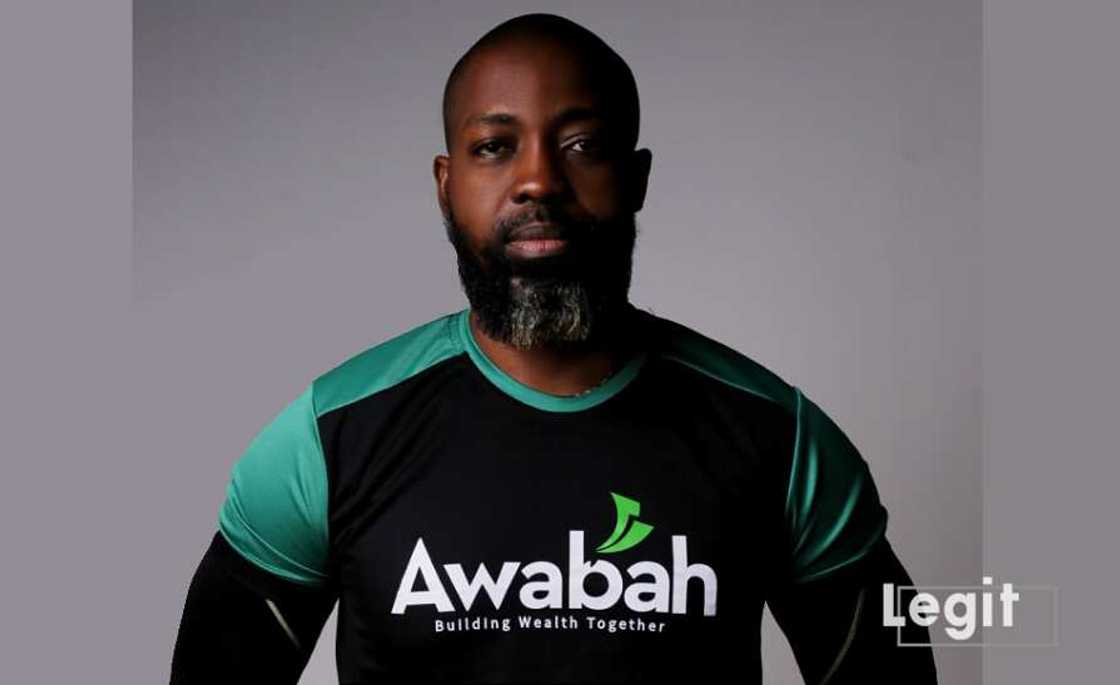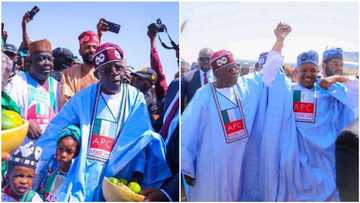How traders, artisans, others can now earn pension - Tunji Andrews, CEO, Awabah
- Whether you are a trader, carpenter, mechanic or bus driver, there is now a chance for you to earn pension at retirement
- Awabah, a digital micro-pension platform, is helping to build a life of self-sustenance and financial independence for Africa’s self-employed population
- The startup is building financial infrastructure around informal sector workers that already exists around formal sector workers
PAY ATTENTION: Сheck out news that is picked exactly for YOU ➡️ click on “Recommended for you” and enjoy!
Financial inclusion, mostly for those in the informal sector, has been the main goal for Fintechs in Nigeria. With about 133 million Nigerians living below the poverty level, according to the latest report by the National Bureau of Statistics, it has never been more imperative to financially include those in the informal sector with some of the perks that are available to workers in the formal sector.
Despite covering over 80% of employment in the country via Micro, Small and Medium Enterprises (MSMEs), the informal sector deserves the necessary infrastructure to scale up their standard of living. With respect to these gaps, innovations like Awabah Nigeria have come up with solutions.

Source: Original
PAY ATTENTION: Сheck out news that is picked exactly for YOU ➡️ find the “Recommended for you” block on the home page and enjoy!
Tunji Andrews, the Co-founder and CEO of Awabah Nigeria, a digital micro-pension platform for Africa’s workforce, was our guest on the November edition of Digital Talks. Our conversation revolved around how the platform is helping to build a life of self-sustenance and financial independence for Africa’s self-employed population.
We are trying to build that financial infrastructure around informal sector workers that already exists around formal sector workers. For instance, if you were working in the formal sector, you would have a pension and insurance, and since you receive a salary, you would also have access to loans. There are so many perks that happen for those in the formal sector. We are trying to build the infrastructure around the informal sector to mimic what the formal sector has.
To properly align its goals, Awabah has partnered with most of the pension fund administrators in Nigeria. Every enrollee who signs up with Awabah, chooses a pension fund administrator to manage their pension fund. The money goes directly from the customers to the pension fund administrator's account. In this case, Awabah sort of operates as a shared service provider.
Nigeria's pension regulator, National Pension Commission (PenCom), aims to increase pension coverage in Nigeria annually. It is part of the effort to achieve this goal that PenCom welcomes startups like Awabah.
PenCom is one of those regulators that thought out its policies very well. To be honest, all the initiatives that we have had are basically the regulator's design, and we are just following through with it. They have been very open and supportive. It might be that they also have a key interest in making micro-pensions work.
Last year, Awabah was accepted into the Techstars London accelerator program and was later able to raise about $200,000 in angel backing. In less than two years since launching out, Andrews and his co-founders, Tina Ajishebiyawo and Gboyega Olatunde, have pushed Awabah to gain a presence in several parts of the country, including Lagos, Ogun, Abuja, Port Harcourt, Edo and Kwara.
We continue to spread. We haven’t done as much as we should in these places but ultimately, our goal is to spread to the entire federation and be able to touch lives in everywhere we possibly can.
The role of government in financial inclusion
Andrews insists that the government has done and continues to do its part in ensuring more Nigerians are financially inclusive. He says the Central Bank of Nigeria, through its financial inclusion desk, continues to guide and support with intervention funds.
It's on record that the CBN gave a N500 million loan to all the major players at the time at single digit interest to go out and spread. If you notice there was an explosion of POS terminals everywhere, it was the CBN's intervention at the time. That's just one of the many things that the CBN is doing.
The government itself has a key interest in financial inclusion. We still have some independent bodies and developmental agencies that also support the informal sector to be financially inclusive
Last words for entrepreneurs
Andrews says that even though sustaining a business in Nigeria can be very challenging, entrepreneurs need to be equipped with the drive not to fold when times get tough.
In Nigeria, the biggest thing you need as a business person is that tenacity and resilience to just keep forging ahead so long as you have something that is driving you. And for me, I just want to be able to see every single person in Nigeria be able to use financial inclusive technology to be able to do transactions. And that is my why. You need to find your why.
Source: Legit.ng






